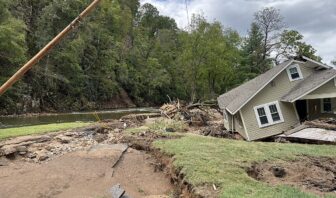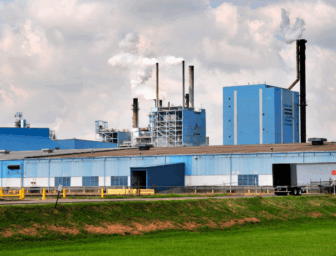In wake of West Virginia derailment and explosion, advocates applaud the bill as a crucial step to increase transparency in Maryland
ANNAPOLIS–Citing growing local safety concerns and an alarming lack of transparency, Delegate Clarence Lam (D-12) has introduced legislation in the General Assembly to require state study of the potential risks of crude oil train accidents in Maryland. The bill also requires disclosure of the volume of crude oil being transported by trains in the state.
“Many communities near our railways are not aware of the millions of gallons of highly volatile crude oil that pass only feet from their homes,” said Delegate Lam, who represents areas of Baltimore and Howard Counties. “As a strong proponent of disclosure and transparency, I believe that this information should be made public so that state agencies and local communities can plan and prepare for the possibility of rail accidents involving crude oil.”
“As we just saw from yesterday’s crude oil train derailment in West Virginia, accidents involving crude oil along our railways are becoming all too frequent, costly, and dangerous,” continued Del. Lam. “With the amount of crude oil being transported by rail, an accident in Maryland is not a matter of ‘if’ but ‘when.’ A similar disaster occurring in or near Baltimore could place many lives at risk, inflict tremendous environmental harm, and cripple significant parts of our economy.”
A boom in fracking in the Bakken region of North Dakota has led to a surge in the transport of highly flammable Bakken crude oil on North American rail lines in recent years. A dramatic increase in spills, derailments, and explosions has followed. Just yesterday, a CSX crude oil train derailed and exploded in West Virginia, destroying one house, setting over a dozen tankers on fire, spilling oil into the Kanawha River and forcing the evacuation of two nearby towns.
In Maryland, the oil industry is currently targeting the port of Baltimore as a new throughway for shipping oil from the Bakken region of North Dakota to East Coast refineries. Texas-based Targa Resources is seeking approval to ship millions of gallons of crude oil daily out of the port of South Baltimore. Meanwhile, rail companies CSX and Norfolk Southern are in the middle of a controversial lawsuit to prevent the state from disclosing the amounts and routes of Bakken crude travelling throughout the state.
“We applaud Delegate Lam for working to clear the fog of secrecy surrounding the movement of toxic and explosive crude oil through Maryland communities,” said Jon Kenney, Maryland Community Organizer at the Chesapeake Climate Action Network. “The explosion that occurred in West Virginia yesterday is yet another wake up call. The public deserves to know where this highly flammable oil is traveling by rail and how our state would respond to a worst-case spill or explosion.”
The legislation introduced by Del. Lam, HB 1073, would require the Department of the Environment and the Department of Health and Mental Hygiene to jointly prepare a risk assessment for the event of a crude oil-by-rail spill in Maryland, and to prepare prevention, emergency response, and contingency plans. The bill also mandates disclosure of the amount of crude oil being transported by rail through Maryland.
“If only one car was to derail and explode, at minimum a half-mile evacuation radius would be necessary to prevent loss of life, while toxic crude could simultaneously spill into our waterways and the Inner Harbor, causing potentially irreversible damage to our drinking water, economy and ecosystem,” said Will Fadely, Baltimore Program Organizer for Clean Water Action. “Is Baltimore really ready for such a devastating possibility?”
Read a fact sheet about the threat of Crude Oil-by-Rail through Baltimore here:
http://chesapeakeclimate.org/wp-content/uploads/2014/10/CCAN-Baltimore-Crude-Factsheet-1.pdf
Contact:
Jon Kenney, 301-385-4187, jon@chesapeakeclimate.org
Kelly Trout, 240-396-2022, kelly@chesapeakeclimate.org
###




